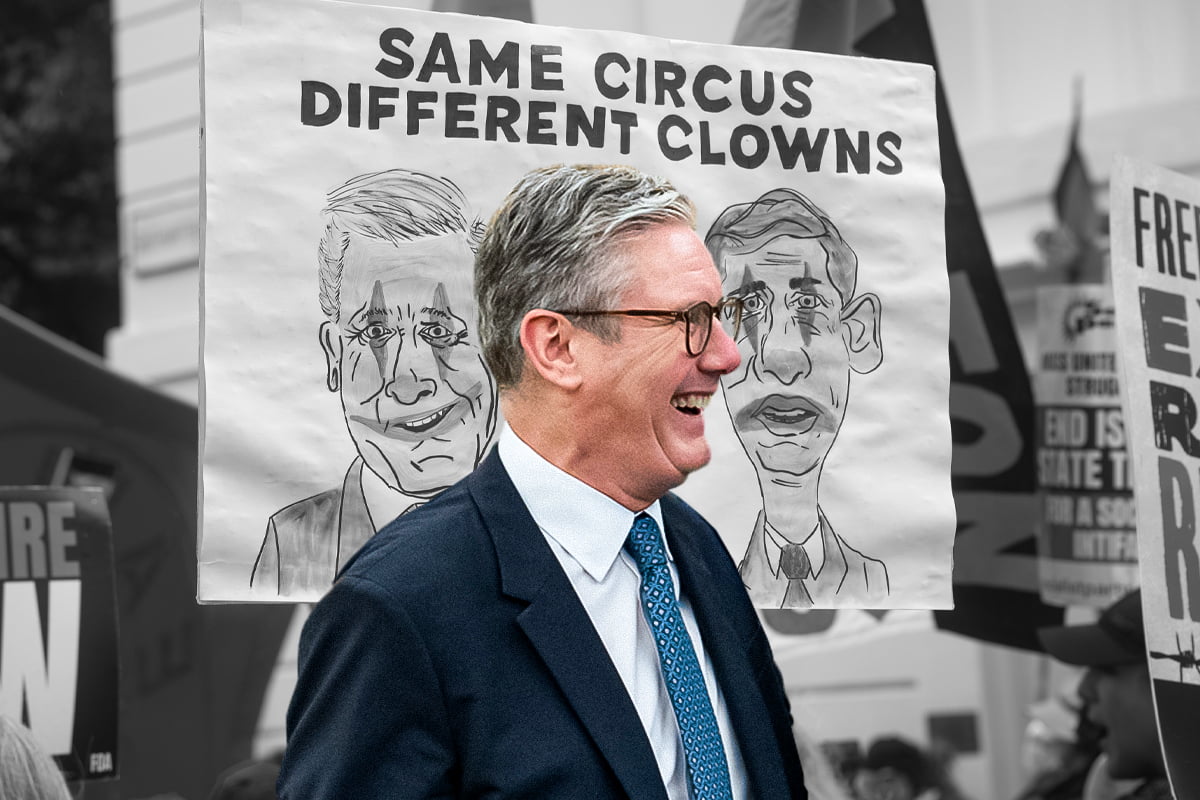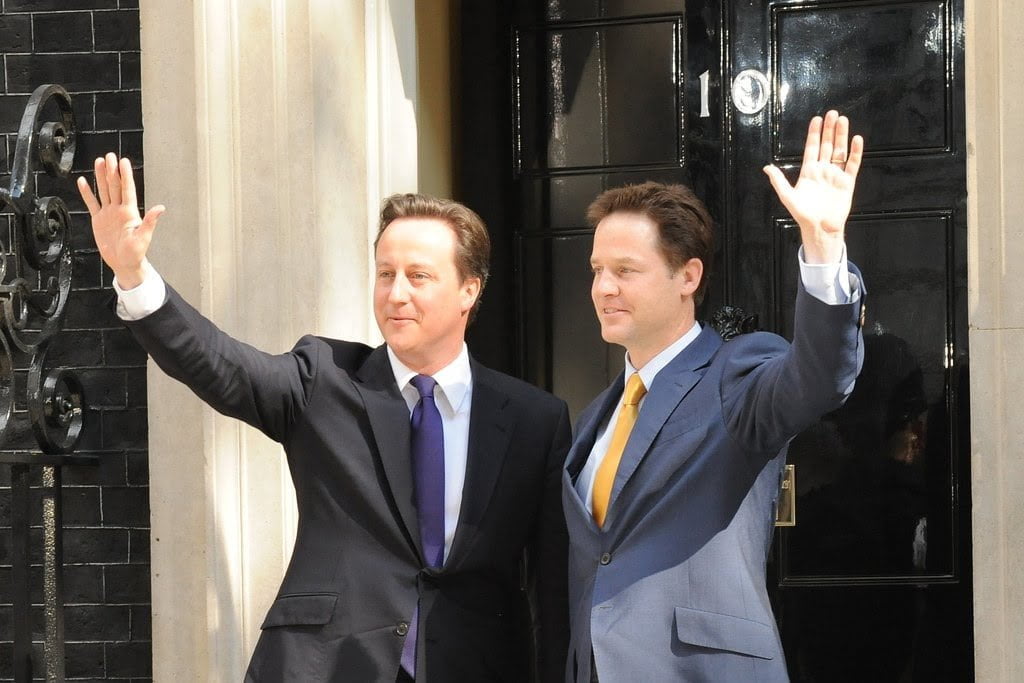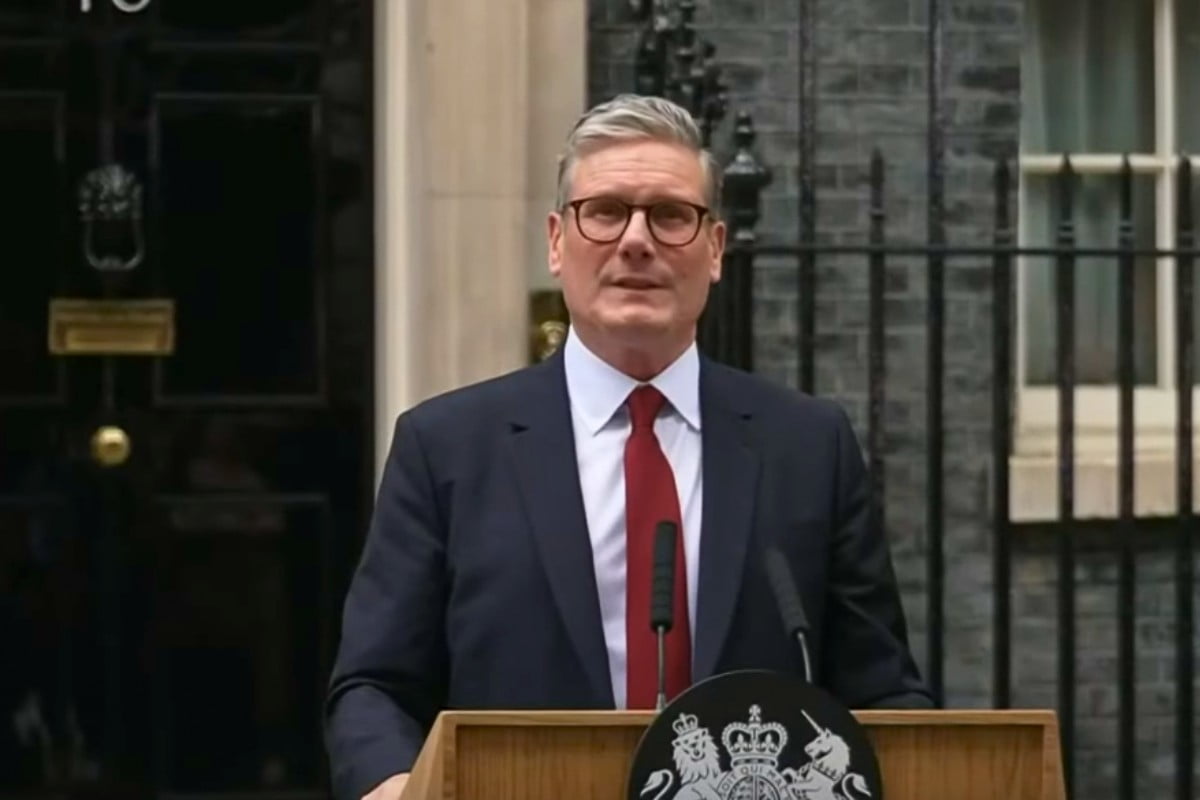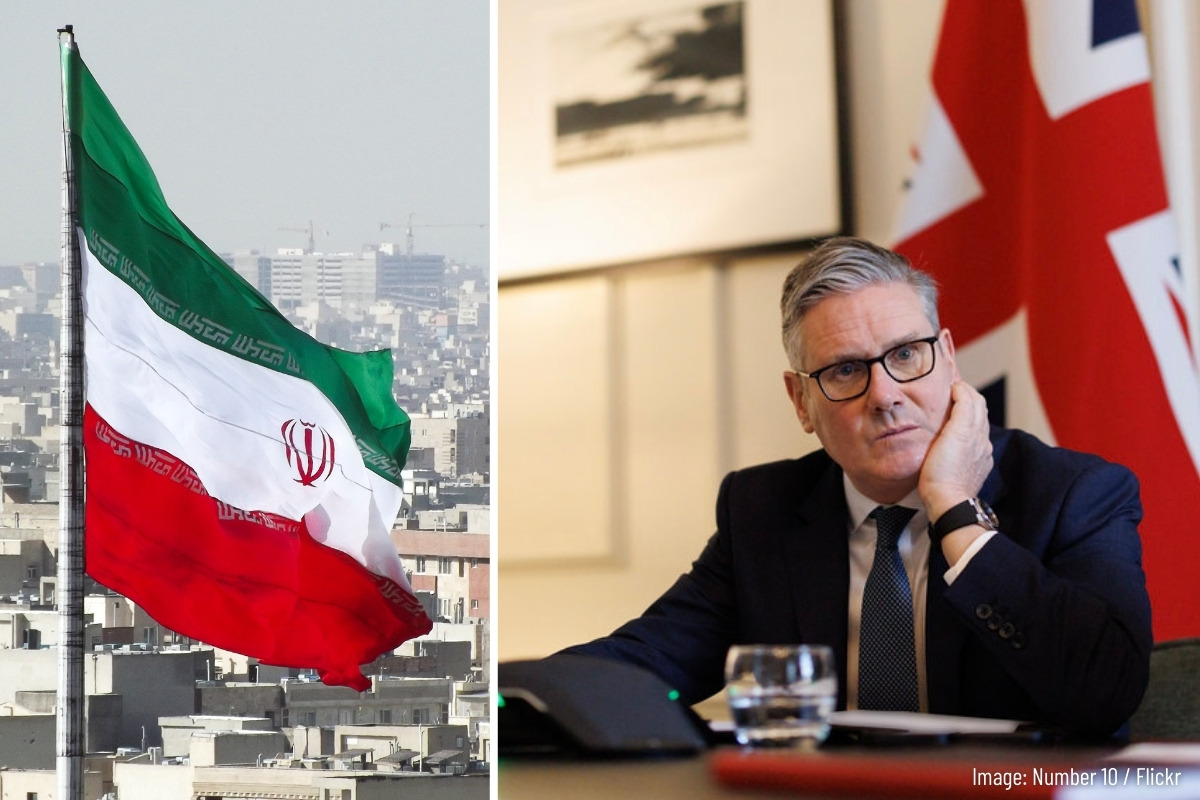In 1997, at the height of the Britpop era, Tony Blair’s New Labour swept into power to the anthem ‘Things Can Only Get Better’.
27 years later, with tired indie-rockers Oasis announcing their gigging return, it seems that Keir Starmer is keen to play his own part in this trite ‘90s revival, putting on a Blairite tribute act for a new generation.
Only this time, the Labour leaders are singing a different tune. Today’s lyrics – the new Prime Minister announced yesterday in front of a stage-managed audience in the garden of Number 10 – are “things can only get worse”.
Bleak future
Speaking at a Downing Street press conference, Sir Kid Starver warned of tough times ahead. “We have no other choice, given the situation we’re in,” he added, referring to the £22bn “black hole” in the country’s public finances, bequeathed by previous Tory administrations.

“Frankly, things will get worse before they get better,” the PM concluded.
For the millions who voted Labour a few months ago, hoping to finally be rid of the Tories, this is certainly not the programme that they had been led to expect.
“There will be no return austerity” – this was Starmer’s refrain during Labour’s election campaign. But as with his other betrayals and broken promises in recent years, this pledge has quickly turned to dust.
Within weeks of being elected, Starmer had affirmed that the draconian two-child benefit cap, introduced by the Tories, would remain in place. Those Labour MPs who voted to scrap it were promptly suspended from the parliamentary party.
Soon after, Rachel Reeves, the new Chancellor, announced that 10 million pensioners will no longer receive winter fuel payments, in order to balance the books. Alongside this, she warned that the public should expect tax rises in the upcoming Budget.
This is a real kick in the teeth for ordinary people, coming at a time when energy bills are set to soar. In October, the official UK energy price cap will rise by 10 percent, equivalent to almost £150 per year for the average household.
Hungry children, shivering seniors, and cash-strapped families: this is the bleak, Dickensian future that Starmer’s Labour has to offer.
Them and us
The Tories and the capitalist press have cynically attempted to play off pensioners against public sector workers. Reeves’ cuts to energy subsidies, they note, are taking place alongside an above-inflation pay offer for hundreds of thousands of staff in the NHS, education, and various arms of the British state.
Having created a far–right Frankenstein’s monster by whipping up xenophobia and bigotry against migrants, the more rabid wing of the ruling class is looking to repeat their divide-and-rule tactics once again: pitting the elderly against workers who have faced years of attacks on their wages and conditions.

But such scaremongering is wearing thin. Ordinary folk – young and old – can see that the real problem is those who travel in yachts and private jets, not in small boats; that the billionaires and their crisis-ridden system, not ‘gilded’ public sector workers, are to blame for austerity and poverty.
Of course, Starmer and Reeves do nothing to counter these pernicious myths. Instead, they simply wring their hands and talk about the need to implement “tough decisions”, while cosying up to their chums in the City of London.
Talk about “those with the broadest shoulders contributing more” is just lip-service and chicanery, designed to distract from the guillotine blade heading for public services, and from the already–dire state of Britain’s hospitals, councils, and schools.
Labour’s pay deal for public sector employees, meanwhile, is less about being ‘pro–worker’, and more about offering union leaders some short-term scraps, in the hope that they will hold back their members when the next wave of cuts begin to bite.
The truth is that there is plenty of money out there to provide decent jobs, wages, homes, and services for all. But it is sitting in the hands of the very bankers and bosses that the Labour leaders are now rubbing shoulders with.
Tory echoes
Labour blames their proposed cuts and tax increases on their Tory predecessors – just as David Cameron did in reverse, when the Conservatives took over from New Labour in 2010.
Cameron used almost word for word the same arguments as Starmer, accusing Gordon Brown’s Labour government of leaving behind a financial “mess” for the Tory-Liberal coalition.
“I tell you what,” stated the-then Tory Prime Minister, “these Labour politicians, who nearly bankrupted our country, who left a legacy of debts and cuts, who are still in denial about the disaster they created – they must not be allowed anywhere near our economy, ever, ever again.”
“We inherited public finances that can only be described as catastrophic,” asserted Cameron, describing the “vast hole” in the government’s accounts.
In the same vein, Starmer now says that: “[The Tories] left us the worst inheritance since the Second World War. And every day – every day – we’re finding more mess that they’ve left for us to clear up.” Again, the Labour leader informs us that there is a fiscal “black hole” that needs to be filled.
“Over the next few years, we will have to take some incredibly tough decisions on taxation, spending and borrowing – things that really affect people’s lives.” So warned Cameron back in 2010. “We will do so responsibly and, in time, we will set out the hard choices that lie ahead.”
Echoing the former occupant of his Downing Street home yesterday, meanwhile, Starmer said: “There’s a Budget coming in October and it’s going to be painful…There is no quick fix to the mess that the Tories have made of this country.”
To rebuild Britain, Reeves similarly says, will “require tough choices”. Putting the country back on its feet – on “firm foundations” – “will take hard work”.
History repeats itself
Cameron’s words were the beginning of more than a decade of cuts, attacks, and plummeting living standards.

Behind this austerity agenda lay the deepening crisis of British capitalism, which took a sharp downward turn with the slump of 2008.
British capitalism has never recovered since. In fact, the decline has accelerated. Investment, infrastructure, growth, and productivity have all collapsed. This reflects the complete impasse of the capitalist system – not only in the UK, but globally.
For 14 years, the Tories attempted to restore the fortunes of British capitalism over the backs of the working class. But things only got worse, not better; especially so for workers, the poor, and young people.
And now history is set to repeat itself with Starmer’s big business government.
Revolutionary conclusions
All of this goes to show that there is no way out for the working class on a capitalist basis. There will be no “better times” ahead.
Starmer’s government will go the same way as the Tories. It will be a government of crisis.
The Labour leaders are promising ‘stability’; attempting to steady the ship and restore order for British capitalism, after years of Tory chaos.
But such hopes have already been dashed. From the recent far–right riots, to the continuing protests over Palestine, to the looming prospect of further strikes and industrial militancy: it is clear that the period ahead will be one not of peace and tranquillity, but of instability, social explosions, and bitter class battles.
The working class will experience first hand Starmer’s school of austerity. But they will not take these attacks lying down. Millions will draw the conclusion that it is the capitalist system itself that is responsible for this endless misery and destitution.
A turbulent new chapter of storm and struggle is therefore being prepared, in Britain as elsewhere. Only a revolutionary programme can offer a solution. That is what the RCP is determined to build and provide.






